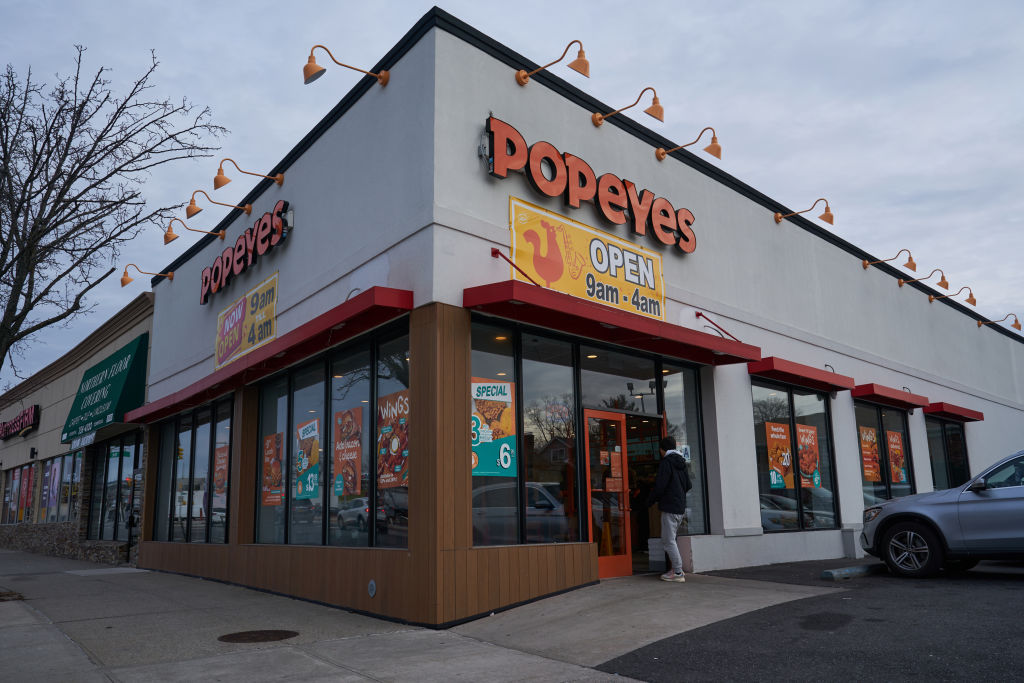February 13, 2024
According to the experts, more franchisee bankruptcies can be expected in 2024, not just those belonging to Popeyes.
In late January, Georgia-based Popeyes franchisee RRG filed for Chapter 11 bankruptcy, as reported by Restaurant Dive. This franchisee oversees operations for 17 Popeyes locations and is among the first multi-unit franchises to seek bankruptcy protection in 2024.
This filing follows a filing by another Popeyes franchisee, Premier Cajun Kings, which filed for bankruptcy in March 2023 after the death of its owner. Industry experts anticipate more franchisee bankruptcies in 2024, not limited to Popeyes.
Ab Ingram, the executive director of the Tariq Farid Franchise Institute at Babson College, suggested that franchisees may navigate these challenges if the economy continues its current upward trajectory.
“For the most part, it depends on the individual operator, what markets they’re in, how well they’ve maintained their units,” Igram said. “If the economy continues to improve, that bodes well for franchisees heading into 2024.”
Eric Danner, a partner in CohnReznick’s restructuring and dispute resolution practice, thinks differently, telling Restaurant Dive that he doesn’t see the economic pressure faced by franchises slackening in 2024. “All of those pressures that the franchisees are citing as causing problems with their operating economic models show really no sign of slackening their impact as you move into 2024,” Danner said. He also pointed out that the restaurant franchises are, in a way, victims of their own success. Following a rush of investors due to the success of the industry during the pandemic, the loans are coming due. “As people bought into the franchise world during COVID, the bulk of that was predominantly borrowed money. And that’s kind of coming home to roost,” he noted.
Compounding the issues faced by some franchises is the relative tightness of the labor market. According to Kevin Clancy, the Global director in CohnReznick’s restructuring and dispute resolution practice, any issue with cash flow or profit margins, often caused by labor shortages, supply shocks (these shocks can be something as small as a harsh winter) or other disruptions can cause operators to default on their loans.
Danner says as the Fed has increased its interest rates, so has the cost of borrowing increased since 2021. “I’ve seen our client’s borrowing costs go up by two to three times,” Danner explained. “That’s significant, especially when you’re talking about borrowing a large principal balance on which to fund an acquisition or significant renovations.” Danner says that the weakest franchises have essentially been eliminated already. “There certainly has been a certain amount of weeding out the weakest that’s taken place in ’22 and ’23.”
As it relates to the recent bankruptcy of the Popeyes franchisee in Georgia, it stems from the failure of three Popeyes locations. According to court documents, RRG “needs to cure those arrearages to avoid lease termination.” Popeyes’ parent company, Restaurant Brands International, has been hit hard by bankruptcies over the last year, including the two Popeyes franchisees and multiple Burger King locations. RBI responded by bringing Burger King locations into closer geographical location with one another in addition to a $400 million branding and restaurant overhaul effort. They did not provide comment to Restaurant Dive when asked if the Popeyes bankruptcies would necessitate intervention on behalf of those franchises.
RELATED CONTENT: Popeyes Ditches Spinach-Eating Brand Ambassador
Enter your Email Address below to get our fun-filled Newsletter!
© 2024 Black Enterprise. All Rights Reserved.

